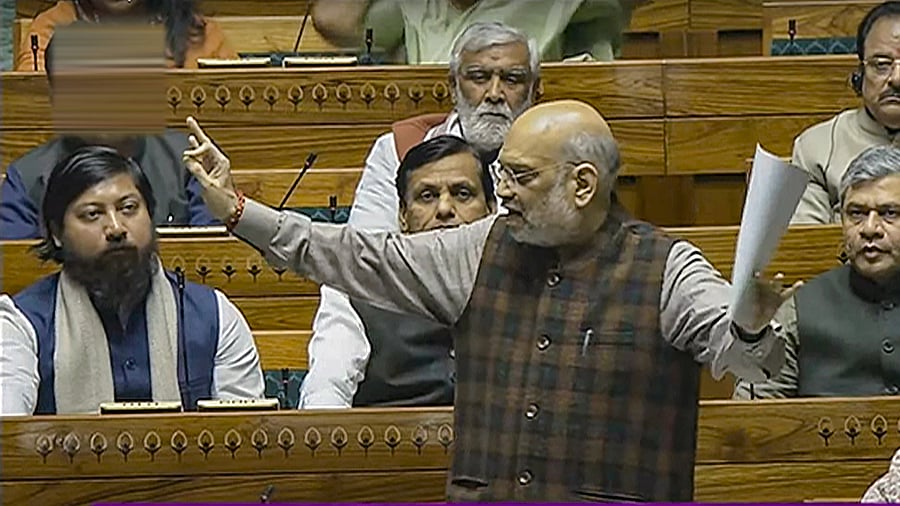
Union Home Minister Amit Shah speaks in the Lok Sabha during the Winter session of Parliament, in New Delhi, Wednesday.
PTI Photo
New Delhi: The Parliament on Thursday granted its approval to three new laws brought about to overhaul the criminal justice system, with the Rajya Sabha clearing the Bharatiya Nyaya (second) Sanhita, the Nagarik Suraksha (second) Sanhita, and Bharatiya Sakshya (second) Adhiniyam to replace three colonial-era laws, providing speedy justice to the citizens.
Responding to the debate in the Upper House, Union Home Minister Amit Shah stated that the new laws would put an end to the current practice of “tarikh pe tarikh” (date-after-date) for people approaching the court, as the verdict on a case would have to be given within three years.
The new laws are set to replace the Indian Penal Code, introduced by the British 163 years ago, the Criminal Procedure Code, which came into existence 125 years ago, and the Evidence Act, which is 150 years old. Shah emphasised, "The soul, body, and thought behind the new laws are Indian."
Shah highlighted that in the new bills, crimes against women and children, murder, and kidnapping take precedence, in contrast to the colonial laws where the protection of the treasury, damage to railway tracks, and treason received more prominence than crimes against citizens.
“Earlier, the objectives of the laws were to protect the British rule and they did not take into account Indians and our rights. The idea was to mete out punishment and not justice. But the souls of the new laws are Indian. They bring the criminal justice system to the 21st century,” stated the Home Minister.
Even though hardly any Opposition members were present in the House, Shah took a swipe at the Congress, saying that those wearing "Italian glasses" couldn't feel the pride in the Indian Parliament framing the new criminal laws, directing his remark at the opposition party's former chief Sonia Gandhi's Italian descent.
The Home Minister highlighted that the bills underwent perhaps the widest consultations ever, with 4,200 suggestions received from various quarters, including 18 states, six Union Territories, 16 High Courts, and 22 law universities. Additionally, 72 per cent of the recommendations of the Parliamentary Standing Committee, which scrutinized the bills, were accepted.
The sedition law has been repealed, but new laws have been introduced for the punishment of acts against the sovereignty and integrity of the country. Shah clarified, “The law that was used against Gandhi, Tilak, and Savarkar will no longer be there. Anyone can speak against the government. But there are provisions to protect the sovereignty and the unity and integrity of India.”
Words like hatred and contempt have been removed and words like ‘armed rebellion, destructive activities, separatist activities’ have been included in the new law. There are also safeguards to protect the “freedom of expression.”
